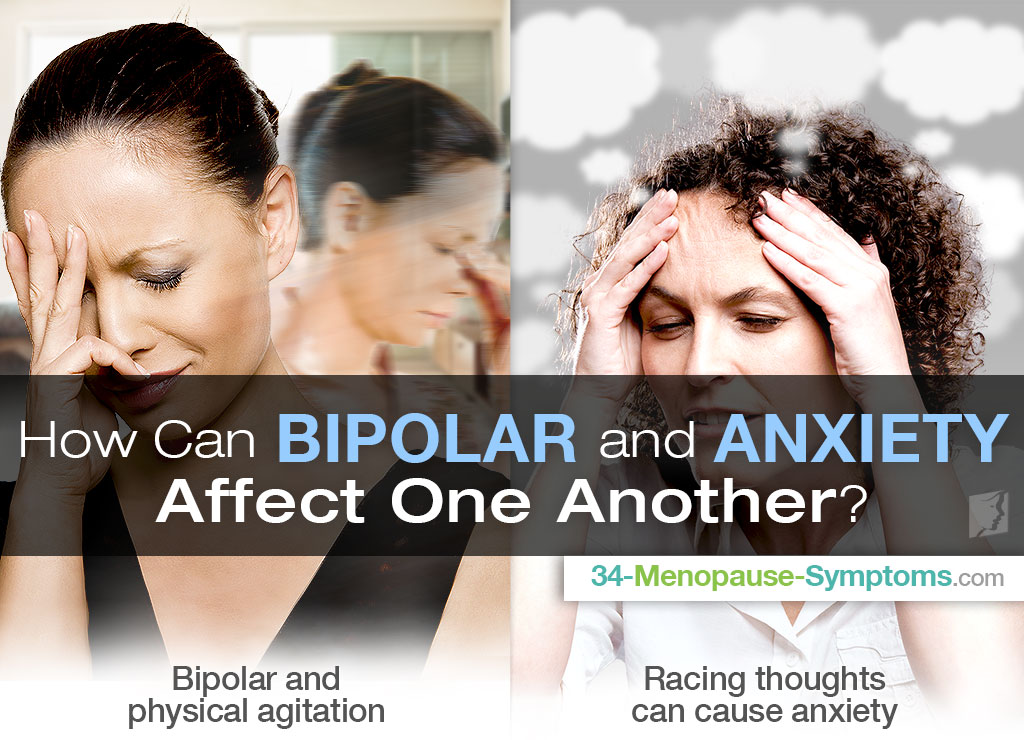Bipolar is a complicated disorder that is more common than women think. It is estimated that 1 in every 100 adults between men and women will experience it at some point during their lives. There has long been a debate among psychiatric circles, regarding whether or not anxiety is a symptom of bipolar disorder, and about how the two conditions can impact on each other. Find out more about how they can be differentiated, and how to recognize if you - or a loved one - is experiencing either, or both.
What Is Bipolar Disorder?
Once known as manic depression, bipolar disorder is a difficult psychological condition in which the sufferer's moods can quickly fluctuate. They are likely to experience periods of lethargy and depression, and then high energy and excitability. Quite often there is no medium between these two sorts of moods, and each one can be experienced for a prolonged amount of time - over a few weeks. This condition can be very hard to live with, and can affect the following areas:
- Day to day activities
- Eating habits
- Relationships
- Work
- Driving
The severity of mood can differ from woman to woman, but can sometimes cause extreme and inadvisable behavior such as making rash, life-changing decisions, buying items you cannot afford, and even self-harm.
What Is Anxiety?
Anxiety is a very common problem among women, and can present itself at any stage of life. It is especially common during menopause; however, due to the fact that during this period there are hormonal changes which can affect the chemicals of the brain - and consequently mood. Anxiety generally presents feelings such as:
- Difficulty sleeping
- Irritability
- Fear
- Nervousness
While it can be frustrating, and can affect your day to day life, anxiety is not considered to be as severe as bipolar, in that it is usually more manageable. It is easier to recognize and deal with on a personal level, often without the intervention of a health professional.
How Can Bipolar and Anxiety Affect One Another?
The idea that anxiety might be a symptom of bipolar disorder was first put forward in 1921 by Dr. Emil Kraepelin. Since then this idea has been widely disputed, but today it is accepted by many mental health experts that it is possible to experience anxiety with bipolar disorder. Or indeed if there is a pre-existing condition of anxiety, this can heighten the intensity of bipolar disorder. Both disorders might be present simultaneously:
Bipolar and physical agitation. Sufferers of bipolar sometimes talk of a general agitation that might reveal itself in the form of a habit such as nervous fidgeting or pacing the room.
Racing thoughts. Many women with bipolar disorder find that they are afflicted with an array of different thoughts that come and go very quickly. In some, these can cause anxiety because they cannot “keep up with their mind”, let alone try to communicate their thoughts to someone else.
The latter of these experiences can be extremely difficult to cope with as it often leads to frustration, which has been a trigger for depression in some cases.
The likelihood of living with bipolar and anxiety is not huge; however, it can be beneficial to somewhat enhance your knowledge of them in case you or a loved one should ever be faced with bipolar and anxiety. In this instance, it is important to seek advice from a medical professional, so that these disorders can be adequately addressed.
Sources
- Royal College of Psychiatrists. (2015). Bipolar Disorder. Retrieved June 9, 2017, from http://www.rcpsych.ac.uk/healthadvice/problemsdisorders/bipolardisorder.aspx
- PsychEducation.org. (2014). Anxiety and Bipolar Disorder. Retrieved June 9, 2017, from http://psycheducation.org/diagnosis/mixed-states/anxiety-and-bipolar-disorder/
- National Health Service UK. (2016). Generalised anxiety disorder in adults. Retrieved June 9, 2017, from http://www.nhs.uk/conditions/Anxiety/Pages/Introduction.aspx
- National Health Service UK. (2016). Bipolar Disorder. Retrieved June 9, 2017, from http://www.nhs.uk/conditions/Bipolar-disorder/Pages/Introduction.aspx




